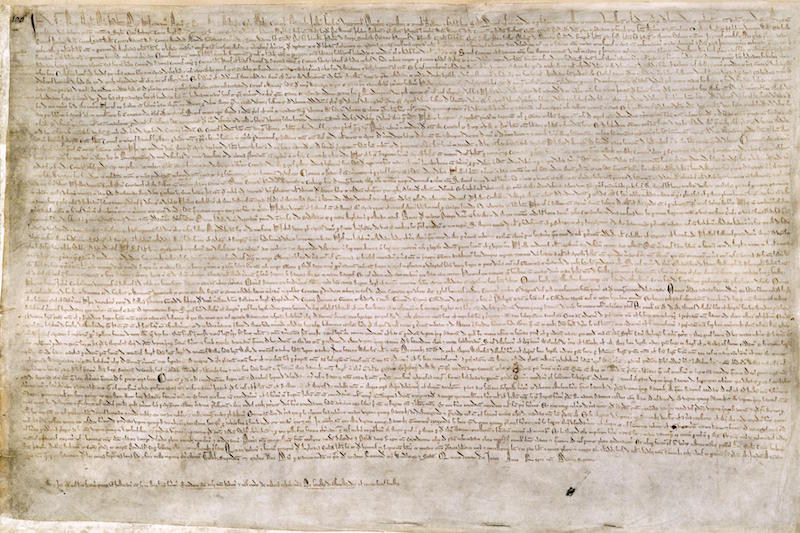The story is sent by email and the message is mobile responsive – i.e., can be read on any device
Subject: [Story] A king under pressure
Hello {!firstname_fix},
You’d think life would be easy, if you were the King of all you surveyed. Yet, back in the early 13th century, things weren’t going so well for King John of England.
He’d raised a mercenary army for an expedition to France, paid for by a tax on the kingdom’s barons in place of providing knights for military service.
It’s no surprise this wasn’t popular with the barons. Especially when the French defeated King John’s army at the Battle of Bouvines, in 1214.
The King was in trouble with the church, too. He’d rejected the election of Stephen Langton as Archbishop of Canterbury, the highest religious office in the land. In return, he’d been slapped with a decree from the Pope and excommunicated until he surrendered his kingdom to the overlordship of the Pope in 1213.
John’s problems grew worse.
A bunch of rebel barons met with Stephen Langton (who by now was Archbishop!) and a representative from the Pope. They wanted confirmation of an earlier royal promise by King Henry I, “to abolish all the evil customs by which the kingdom of England has been unjustly oppressed.”
King John refused.
This fired up the barons. They renounced their allegiance to the King, chose a new leader, and captured the City of London in May 1215. Once London was in their hands, John had no option but to negotiate with them.
They met at Runnymede, on the River Thames near Windsor, in the south of England and, after discussions with the barons and the clerics, on 15 June 1215 King John granted the Charter of Liberties, which became known as the Magna Carta.
Magna Carta means ‘The Great Charter’ and it is one of the most famous documents in the world. It established for the first time the principle that everybody, including the king, is subject to the law.
The 39th clause, perhaps the most famous, gave all free men the right to justice and a fair trial.
Some of Magna Carta’s core principles are embedded in the U.S. Bill of Rights (1791) and in other constitutional documents around the world, including the Universal Declaration of Human Rights (1948) and the European Convention on Human Rights (1950).

Further revisions of Magna Carta were issued by King Henry III in 1216, 1217 and 1225. The last version was granted specifically in return for a payment of tax by the whole kingdom leading, in due course, to the first summons of Parliament in 1265, which approved the granting of taxation.
At the Jones Law Firm, we’re here to protect the ancient rights granted to you by King John! From litigation to taxation, and everything in between, you can rely on us for advice and support.
If I can help you, or your friends, please call me anytime, at (987) 654 3210
Sincere regards,
John J. Jones
Managing Partner
Jones Law Firm
P.S. My grateful thanks, this month, to Jennifer Rivkin, Peter Hall and Alan Weinstein for kindly referring our firm to their friends and family.
Each email is fully personalized and appears to come from your email address, so any reader replies will come to you. In addition, the message will comply with regulations by including an unsubscribe link, and will show YOUR address, below.
103 Any Street
Your City 010101
Unsubscribe | Change Subscriber Options